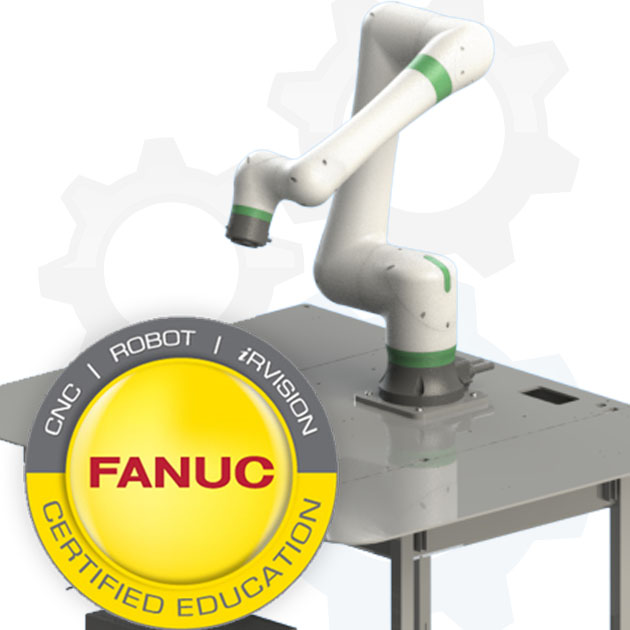Empowering the Workforce of Tomorrow with FANUC
From Classroom to Career: FANUC's Impact on STEM Education

In today's rapidly evolving technological landscape, educators face the challenge of preparing students for the workforce of tomorrow. With industries increasingly adopting automation and robotics, integrating cutting-edge technology into educational curricula becomes imperative. This case study explores how FANUC's robotic solutions are empowering educators to enhance student learning experiences and prepare them for success in the modern workforce.
Overview
In collaboration with educational institutions worldwide, FANUC provides comprehensive robotic solutions tailored for classroom settings. These solutions offer hands-on learning experiences that bridge the gap between theory and practical application, empowering students with valuable skills in robotics, automation, and mechatronics.
Highlights
Curricular Integration
Curricular Integration
Educators seamlessly integrate FANUC's robotic solutions into existing curricula, enriching STEM (Science, Technology, Engineering, and Mathematics) education with real-world applications. Students engage in activities ranging from basic programming exercises to advanced automation projects, fostering critical thinking, problem-solving, and creativity.
Hands-On Learning
FANUC's educational robots offer students hands-on learning experiences, allowing them to interact directly with robotic systems in a controlled environment. Through practical exercises and experimentation, students develop technical proficiency, gain confidence, and cultivate a deeper understanding of robotics principles.
Industry-Relevant Skills
By using FANUC's industry-standard robotic platforms, students acquire skills directly applicable to modern manufacturing environments. They learn to program, operate, and troubleshoot robotic systems, preparing them for careers in fields such as robotics engineering, automation, and mechatronics.
Collaboration Opportunities
Educational institutions collaborate with FANUC to access training resources, curriculum development support, and technical assistance. This partnership enables educators to stay abreast of industry trends, leverage best practices, and optimize the implementation of robotic solutions in educational settings.
Conclusion
FANUC's robotic solutions play a pivotal role in empowering educators to deliver high-quality STEM education and equip students with essential skills for the future workforce. By fostering hands-on learning experiences, facilitating industry-relevant training, and promoting collaboration, FANUC enables educational institutions to prepare students for success in an increasingly automated world.



